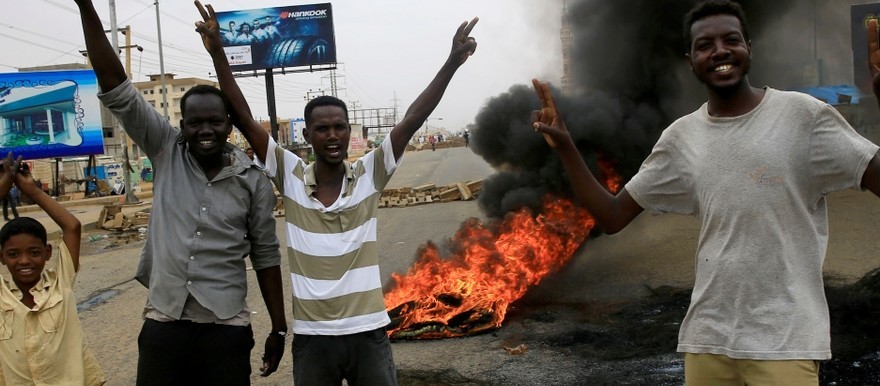Sudan's ongoing internet shutdown is a gross violation of human rights and should be lifted immediately, Human Rights Watch said on Wednesday.
Disruptions to access escalated over the past week and the country is now almost entirely cut off from the internet, after forces violently attacked and dispersed protesters.
The international human rights group said in a statement that the authorities in Sudan should immediately restore access to the internet. It pointed out that the internet is vital for emergency communications, including information from health care providers, and to access other basic information in times of crisis.
"If the Transitional Military Council genuinely intends to restore peace and maintain good will with civilian opposition leaders, it should reverse this dangerous shutdown, which puts even more lives at risk," said Priyanka Motaparthy, acting emergencies director at Human Rights Watch. "These shutdowns blatantly repress the rights of the people the military council claims it wants to have a dialogue with."
Activists began reporting mobile internet disruptions on June 3, 2019, when security forces carried out a bloody attack on the sit-in in Khartoum, killing dozens of people.
The attack followed weeks of growing tensions as talks stalled between military rulers and opposition groups over the formation of a civilian-led transitional government, following the ouster of former president Omar al-Bashir on April 11.
Officials should not use broad, indiscriminate shutdowns to curtail the flow of information, or to harm civilians' ability to freely assemble and express political views, Human Rights Watch said.
It urged the international community in contact with military council officials to stress the importance of fully restoring service immediately, given the clear violation of rights and the harm linked to the current shutdown.
"No one is going to believe that a government that has repeatedly blocked this crucial avenue of communication is otherwise dealing with protesters in a proportionate, rights-respecting manner," Motaparthy said. "There is simply no legitimate justification for this overbroad measure that is designed to repress the exercise of fundamental rights."




